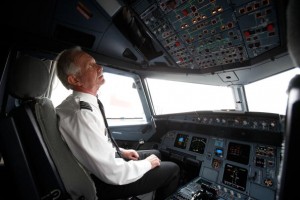Aircraft pilots are forced to consistently cope with high stress levels because of heavy flight agendas, safety concerns and their responsibility for passenger’s lives every single day at work. This stress can result in physical and mental problems, as well as a reliance upon alcohol and drugs as a coping mechanism. This substance abuse, consequently, can rapidly descend into dependency and addiction if left unchecked. For aircraft pilots dealing with alcohol or substance abuse, early treatment is important.
 Although enrolling in rehab at the first indications of alcoholism or substance abuse is the greatest path to an effective recovery, many aircraft pilots have a problem with even acknowledging that they have an issue. There are a lot of reasons for this, including fear for their employment or an inclination to think they have everything “under control.” The air travel industry has a tendency to attract the kind of people who have a difficult time knowing when to seek help, and pilots are no exception. Oftentimes, aircraft pilots see every problem as something they are able to handle through strength of mind alone. However, substance abuse rarely allows for a “do-it-yourself” approach to recovery.
Although enrolling in rehab at the first indications of alcoholism or substance abuse is the greatest path to an effective recovery, many aircraft pilots have a problem with even acknowledging that they have an issue. There are a lot of reasons for this, including fear for their employment or an inclination to think they have everything “under control.” The air travel industry has a tendency to attract the kind of people who have a difficult time knowing when to seek help, and pilots are no exception. Oftentimes, aircraft pilots see every problem as something they are able to handle through strength of mind alone. However, substance abuse rarely allows for a “do-it-yourself” approach to recovery.
Effective recovery from alcohol or substance abuse nearly always involves participation in a structured program of detox and treatment. For aircraft pilots, the strength of treatment methods are elevated substantially with a specialized pilot rehab. By addressing the particular problems that aircraft pilots face, these personalized programs can provide aircraft pilots the very best chance at real recovery. Often, they are also staffed with people who have been employed in the air industry and understand its atmosphere and triggers. A number of these staff people have been through treatment themselves, and are an invaluable source of information for making a full recovery.